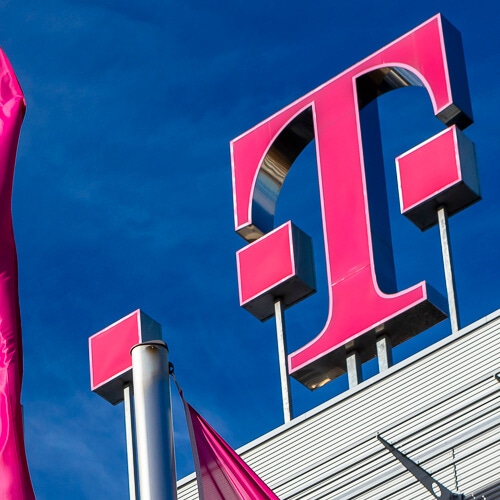
Also in today's EMEA regional roundup: Renault throws in its lot with Google Cloud; OneWeb boosts broadband coverage in Oman; UK users unhappy about mid-contract price rises.
Deutsche Telekom has invested $25 million in Teridion, an SD-WAN provider based in Raanana, Israel. Companies can use the Teridion Liquid Network to connect their sites to cloud centers and applications. As part of the investment, Matthias Budde, Deutsche's SVP of group strategy and transformation, is joining Teridion's board of directors. Teridion, which is deployed on 25 different cloud providers, was founded in 2013 and has 50 employees. Figure 1:
 (Source: Deutsche Telekom)
(Source: Deutsche Telekom)French carmaker Renault is extending its partnership with Google, introducing the concept of the "software defined vehicle" (no groaning at the back) which, the pair say, will bring together the best of the automotive and digital worlds to allow for new on-demand services and continuous upgrades that can be delivered remotely. Basically, it sounds like Renault is entrusting Google Cloud with its whole connected-car program, a move the carmaker hopes will enable it to reduce costs and make life better for those in the driver's seat.
OneWeb, the satellite connectivity provider co-owned by the UK government and India's Bharti Global, has signed a distribution agreement with Azyan Telecom to improve broadband coverage in Oman. The deal also involves the separate joint-venture company formed between OneWeb and Tonomus. The delivery of reliable high-speed connections in Oman has to date been hampered by challenging terrain and frequent hurricanes. Services are expected to start in the second half of 2023.
Germany's ADVA saw third-quarter revenues increase by 18.3% year-on-year, to €179.6 million ($179.5 million), predominantly driven by growth in demand from network operators and Internet content providers. The stronger US dollar also helped. Net debt, however, increased from €0.9 million ($0.9 million) in the previous quarter to €17.4 million ($17.4 million) in Q3, due to the vendor having to take on new financial liabilities to finance its current high inventories. For the fiscal year 2022, ADVA expects revenues to be somewhere between €680 million ($679.8 million) and €730 million ($729.9 million).
Four in five UK telecom customers think mid-contract price rises are unfair and want their monthly bills to stay the same for the duration of their contracts. That's the perhaps unsurprising headline finding of a new survey by price-comparison website Uswitch.com, which is calling on providers to scrap such hikes. According to Uswitch, 25 million mobile customers and 10 million broadband customers face price hikes next spring, with the majority of providers linking their annual price rise to inflation rates and some of them adding an additional 3-4% on top.
As the COP27 climate conference gets underway in Egypt, Nordic operator Telia is looking to gently apply more pressure on its suppliers to encourage them to set sustainability targets that are, as the operator puts it, "congruent with the science." To be fair, Telia has been trying to do this for two years but to date just 29% of its supply chain has managed to get fully onboard. For its part, Telia says it has reduced emissions in its own operations by 78% since 2018.
— Paul Rainford, Assistant Editor, Europe, Light Reading
Read more about:
EuropeAbout the Author(s)
You May Also Like




.jpg?width=300&auto=webp&quality=80&disable=upscale)







